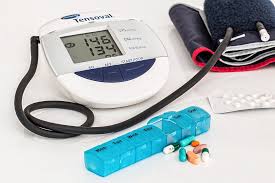What are the causes for hypertension during treatment for blood pressure?« Back to Questions List
|
Hypertension is a health condition that occurs mainly in people aged 18 to 49. Hypertension exhibits systolic blood pressure of 140 or higher (against optimal of under 120) even with normal diastolic pressure of around 80. Systolic pressure is the top number and diastolic is the bottom number that we obtain while taking a blood pressure reading. Hypertension is asymptomatic which does not cause any symptoms till in the final stages. It is often termed as silent killer because of this characteristic and also because of the difficulty in identification. There are chances that hypertension may appear even under treatment for blood pressure. One of the most occurring reasons for sudden increase in blood pressure is not following the prescription by the doctor strictly. It is estimated that only 20% of those who suffering from hypertension seek medical treatment and of these only 5% have their blood pressure under control. It is strongly advised by doctors that once a person starts taking medication for hypertension, continuing the medication lifelong is essential to keep the condition under control. Taking lower dose than prescribed also will not help to maintain the pressure. If blood pressure reaches normal, reduce the dose only as per the advice of doctor. Lack of proper diet is the second major cause. High intake of salt or salty foods leads to thickening and narrowing of arterial walls that lead to clogging up. This hinders blood, oxygen and nutrients supply to body organs. Other major items to be avoided are pickles, papad, fast foods, red meet and alcohol. If a person who is taking medicine for hypertension has to take medicine for other health problems, even for minor cough or cold, it may lead to medical interaction. This may increase or reduce blood pressure. Talk to doctor, reveal taking the medicine and then start taking medicines for other diseases. Sometimes, hypertension may arise from other underlining diseases or causes. In such cases it is known as secondary hypertension. For example, kidney disease often leads to hypertension. In the endocrine condition called pheochromocytoma, adrenal glands produce excess hormones of adrenaline and noradrenaline which may lead to sudden high blood pressure.
Continuing the medicine lifelong, following a strict diet, consulting a doctor before taking medicines for other diseases and having proper diagnosis of underlying diseases, if any, are essential to keep blood pressure under control even during treatment for blood pressure. Cholesterol: Everything You Ought To Know, In A NutshellHealthy and Wealthy Heart
|

